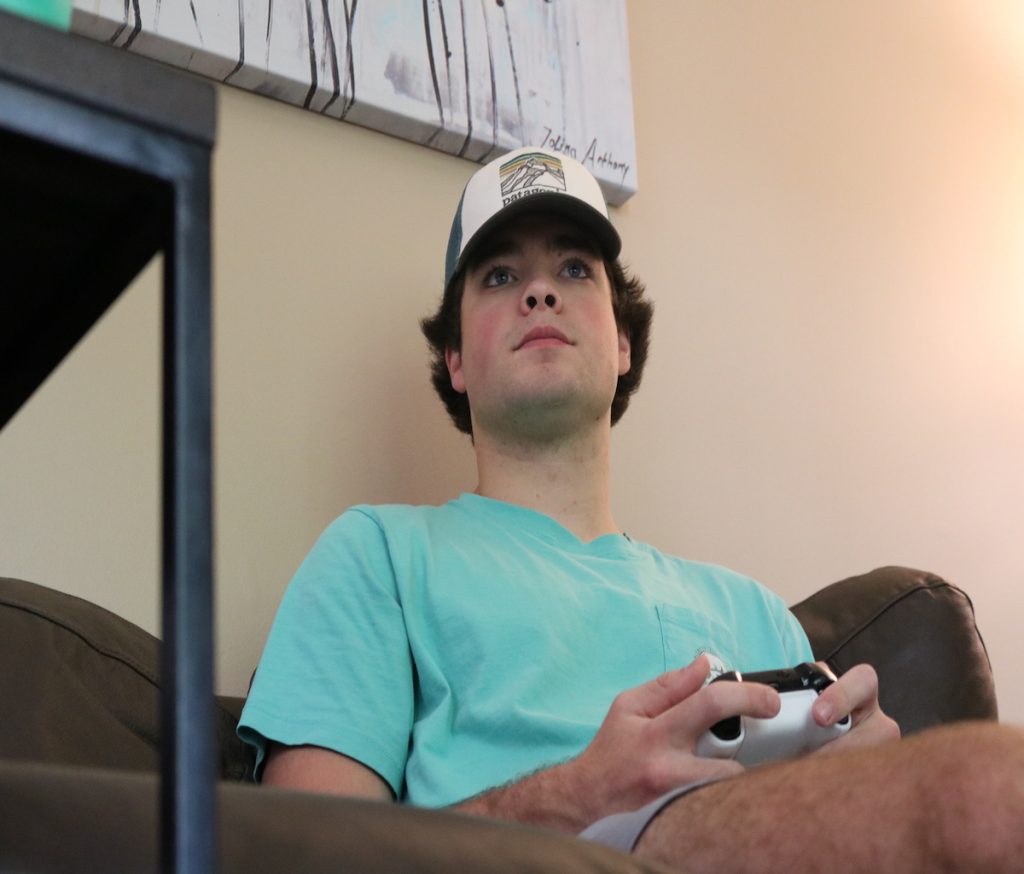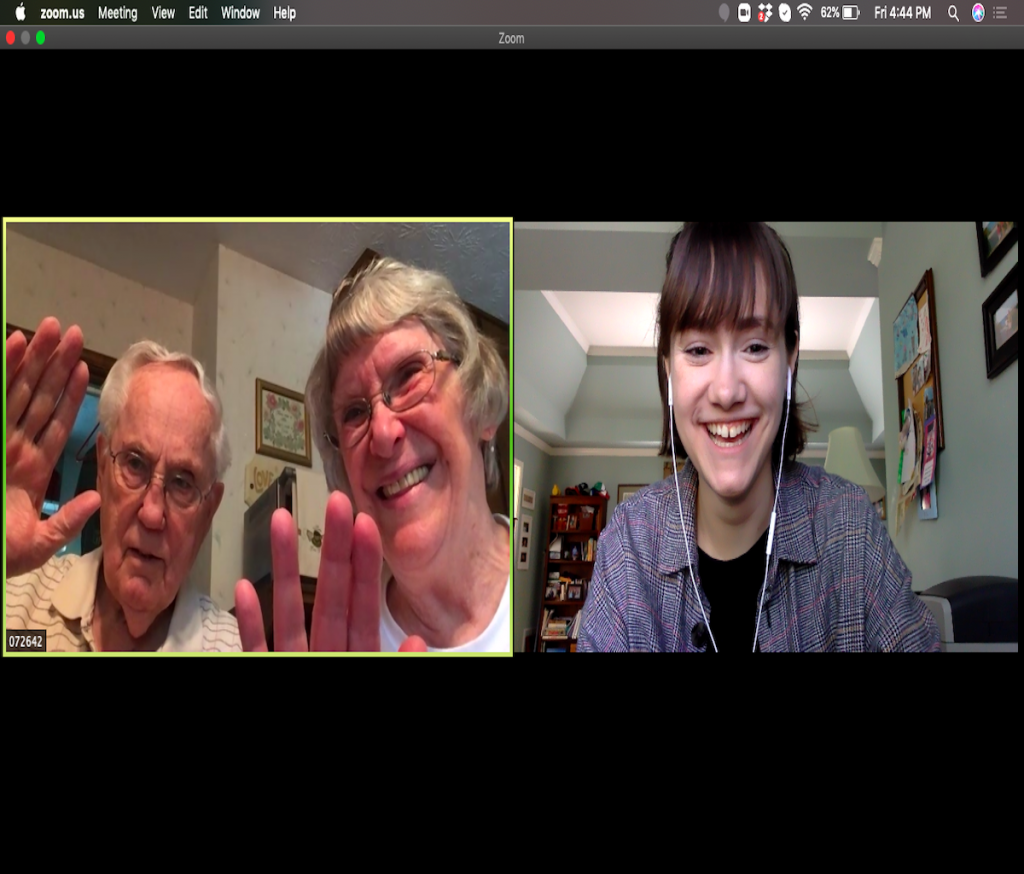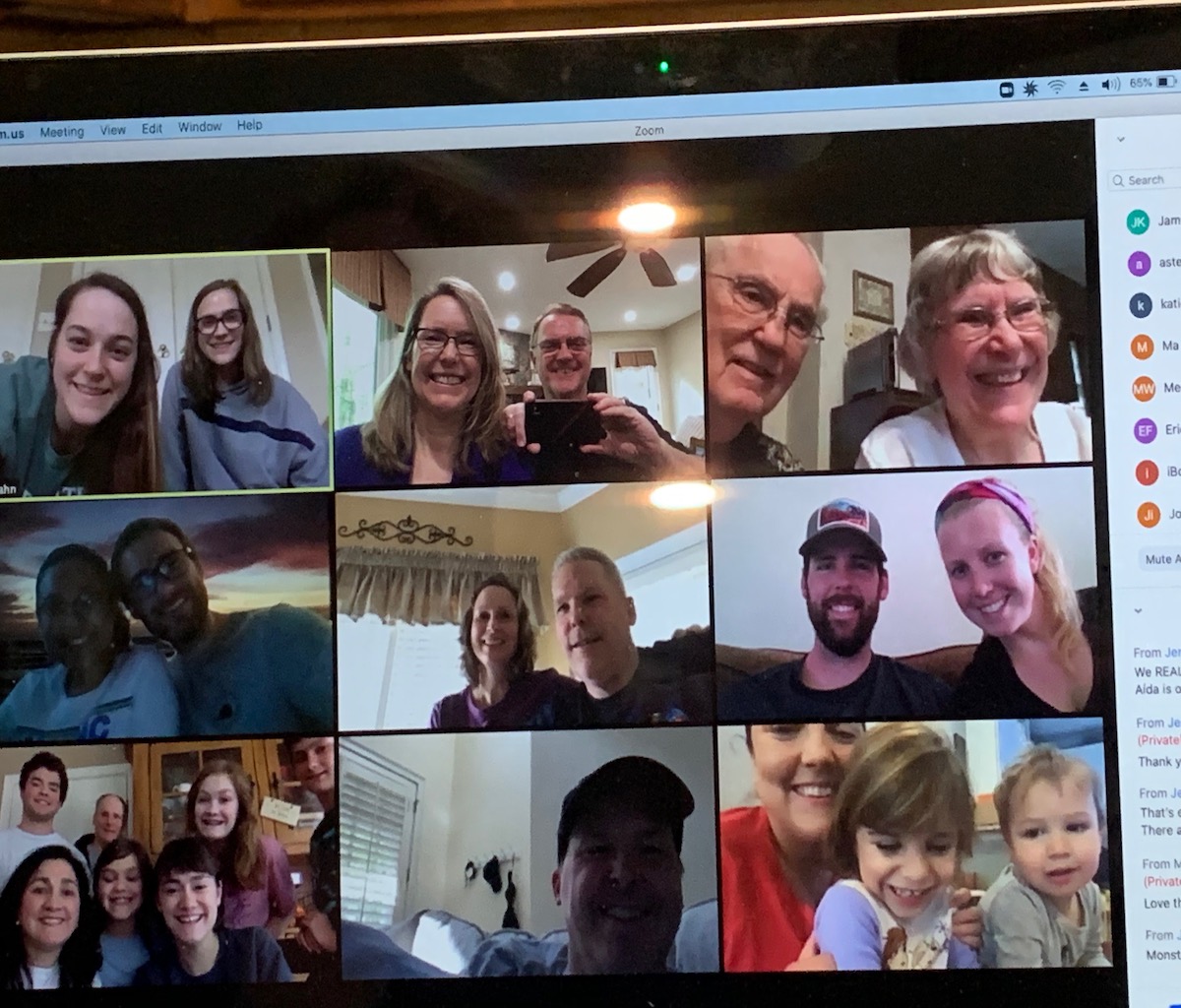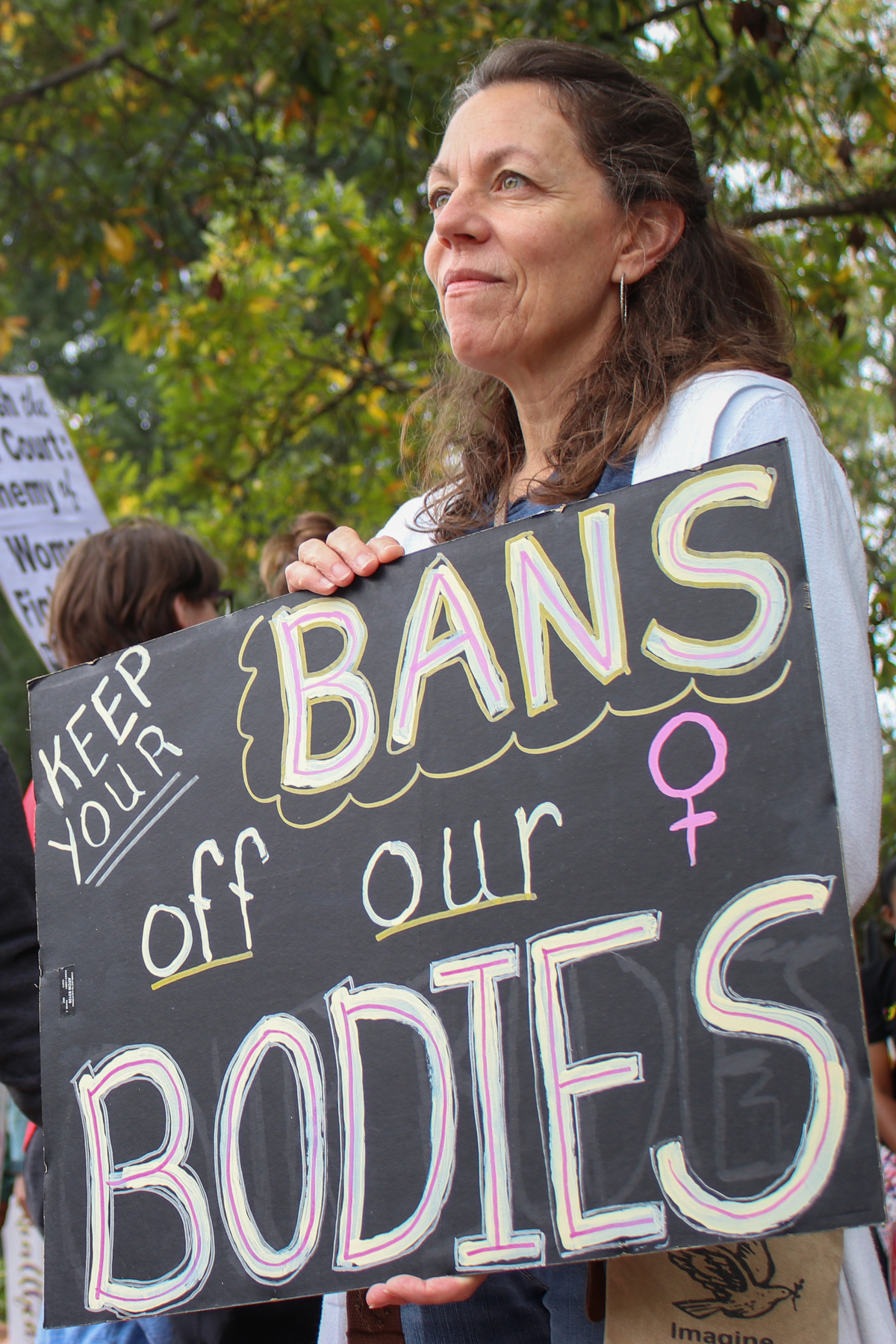Listening to the Wahn family sing “Happy Birthday” is like hearing a choir of wolves howling to the moon—disjointed, a bit off-key and, above all, loud. Coming in at 28 members strong when all are present and accounted for, it’s a broken chorus that fills a cramped kitchen at least once a month.
These days, the Wahn’s renditions of “Happy Birthday” still sound pretty disjointed—but the disjointedness is less a result of their egregious harmonizing, and more so due to poor audio quality and exhausted WiFi connections.
With the exception of four members, the entire Wahn family lives in Georgia. They’re accustomed to spontaneous front porch hang outs, crowded houses and lots of hugs. They’re used to seeing each other.
Why It’s Newsworthy: The need for social distancing in the time of COVID-19 has revealed the different methods people of different generations use to stay connected with each other.
With the need for social distancing, as well as self-quarantine for some, the “seeing” each other has had to shift and, with that, many other aspects of the Wahn family’s lives. Each generation is adapting to the new shift in life differently. Some have leaned into video and phone calling each other, while others have found themselves perusing Facebook more. While they’re grateful to have technology to help them maintain communication with those they can’t physically be with, a general consensus is echoed—it’s not exactly the same.
Generation Z: Jackson Wahn

Jackson “Jack” Wahn has filled the role of “resident lawn mower” in the family prior to leaving for his first year at Clemson University. Once a week, Jack would drive the few minutes to his grandparent’s house to cut grass. After finishing his labor, he’d retreat inside and eat one of his Ma’s “special sandwiches” —“turkey, ham, mayo, mustard and whatever cheese she has” on the white mountain bread from Publix.
Now that his in-person classes at Clemson have been suspended, Jack has resumed his job as family lawn mower—only now, he has to make his own lunch.
“I haven’t hugged Ma or Pa probably since Christmas break, which is completely abnormal because usually I’m giving them a hug once a week when I come over to cut the grass,” Jack said.
Going to college out of state, Jack isn’t able to see his family as much as he’d like to. Being back in Georgia due to COVID-19, he still isn’t able to see his family or even some of his college friends.
“We all we all miss each other a lot,” Jack said. “The boys are put out for a little bit.”
To stay in-touch with his “boys,” Jack has been playing more of his Xbox. Back at Clemson, the gaming console mostly sat as an afterthought in his dorm, unused and gathering dust. Now it’s something he spends most of his time on when he’s not mowing grass or working.
“When I would play when I was at college in my dorm, I would check the friends list, and there’d be four or five people online. When I looked at the friends list, there were like 30 people online,” Jack said.
Using his Xbox, Jack is able to connect with his friends, new as well as some old.
“I’ve been playing with a lot of people that I haven’t talked to since middle school,” Jack said. “There’s nothing else to do. It’s really not much small talk at all. You just kind of go in like ‘Hey, what’s up, man? How have you been’ and then just start playing the game.”
Things have certainly changed for Jack, but daily life isn’t all that different from what he’s used to. With the exception of being unable to gather in large groups, go out to restaurants or attend an in-person class, not a lot of Jack’s day-to-day has changed.
“The life I’m living right now, during the pandemic, I would say isn’t too far off from what I would do on a normal summer day,” Jack said.
Aside from Zoom lectures in the place of the typical 300-person lecture hall, even the digital-based structure of college hasn’t changed that much to Jack.
“Everything was already set up to where you go online, you log into Canvas, and you see your assignments for the day [and] you have a certain amount of time to get those done,” Jack said. “You [already] don’t really have much stuff in person anymore.”
One aspect of life noticeably different to Jack is how he’s able to interact with his family. He only ever talks to his grandparents from a distance and his whole family, the people he used to see religiously once a month at minimum, he sees in pixelated-form on a screen.
“That’s like that’s your stereotypical dystopia,” Jack said. “Reality really does hit you in that scenario when you’re on a Zoom call on a computer with your whole family, and you can’t be with them.”
It can be said that COVID-19 has been an inconvenience for Jack, a contrast to the thousands of university students who have spent the last few months lamenting the abrupt end to college and subsequent premature migration back home. It’s not the way Jack envisioned his first year as a college student panning out, but he remains unflappable.
“I feel like I’m pretty good at adapting to things. And so, to be honest, there’s not a huge void for me,” Jack said.
Millennial: Katie Wahn
Katie Wahn’s life felt close to getting started. The beginning of March saw Katie completing her field work in in-patient rehabilitation at an assisted living facility for the elderly in Wisconsin, the last step for her occupational therapy graduate program before she graduated into the workforce in May.
But on a Thursday afternoon in March, all those parts that seemed to be firmly in place were thrown up in the air with a simple phone call. Soon after, Katie, as well as a few other students, became members of the growing group of American workers deemed “nonessential staff.” Given the primary demographic and the fact a flu outbreak had also just occurred, the facility didn’t want to put their occupants anymore at risk than they already were. With nothing else to do in Wisconsin, Katie packed up her belongings and spent two days driving back to her parent’s house in Cumming, Georgia.
“I’m not making money. I’m not working toward my degree. Now, I don’t know when I’m graduating. My goal was to have a job by my birthday in September, that’s not gonna happen,” Katie said. “I can’t go to field work, which means I can’t finish my degree, which means I can’t work, which is what I’ve been working toward for the past two years.”
This is the state of stagnation and boredom Katie has found herself in for the last two months. Telehealth—the process of providing healthcare through video calls—was given as an alternative for in-person field work for some of students in her graduate cohort. The facility Katie worked at opted out of telehealth due to Health Insurance Portability and Accountability Act (HIPPA) violation concerns and feelings that it would likely be inefficient.
“I don’t see it as the best option. It’s not like hands on practice,” Katie said. “Also, being with the older adults, can you imagine being like, ‘Okay, do this’ and they’re like, ‘what?’ It just doesn’t seem feasible.”
Without work or classes to fill her days, Katie’s been making up activities to occupy her time. Lately she’s been cooking, scrolling through Instagram, playing defunct app games like Trivia Crack with pals—“Because why not?”—and utilizing phone and video calling to maintain contact with her friends and family. A pretty frequent phone caller and FaceTimer pre-COVID-19, Katie hasn’t experienced much of a shift in daily-practice.
https://www.youtube.com/watch?v=zY6UB37-zzg&feature=youtu.be
“I’d prefer a phone call, [and] I typically tend to try and FaceTime my friends anyways,” Katie said.
These days, Katie normally does about two video calls or phone calls a day. If it’s a one-on-one conversation, she’ll typically talk for about 20 minutes. If it’s a big group call, then an hour. While FaceTime and phone calls are a familiar practice for Katie, she says the group functions feel new for her. Her and her friends find themselves using the app Houseparty with groups of friends as a substitute for actually being together.
“It feels more normal than I would have expected. It’s kind of fun, I guess,” Katie said.
She’s conscious of the absence of tangible people during these interactions, and occasionally catches herself missing it. However where others report video calling drains their energy, she finds they make her feel rejuvenated.
“I leave a phone call or a FaceTime I’m like, ‘that was nice.’ It feels refreshing. Which is weird because, for me, normally social interaction [makes me] tired,” Katie said. “I don’t know if [it’s because] I don’t go anywhere, I’m comfortable in my room.”
While there wasn’t much of a learning curve when it came to figuring out how to use Zoom or Houseparty, Katie does bemoan one specific hurdle that video calls have highlighted.
“My parents WiFi—it’s killing me. It’s been slow,” Katie said. “[My friends are] like ‘Katie, we can’t see you half the time’ and I’m like ‘why am I even here if you can’t even see me, but my WiFi won’t help me, so I’m sorry.’”
Although Katie’s comfortable with the shift in standard interaction, there’s a missing piece to the puzzle that her grandparents used to fill. It’s a void that’s existed for the last two months, the longest Katie’s gone not seeing them in person. She’s reminded of it whenever there’s a hug she wants but can’t have or some baked goods she wishes she could share.
“Last weekend, I made raisin cookies, which are Ma’s favorites. And I was like, ‘Oh, I’ll just drop them off, right?’ And it’s like, ‘No, you can’t just drop them off.’ I think every now and then I catch myself like, ‘oh, I’ll just go do this, right?’ And it’s like, ‘oh, no, you can’t do that.’”
But, at the end of the day, some contact is better than none to Katie. She values it in whatever form she can get it, whether it’s with her friends or her family.
https://www.youtube.com/watch?v=9jm0UV3FTV4&feature=youtu.be
“It is weird because no, this isn’t normal,” Katie said. “I’ll take a FaceTime. It might not be the best thing or the most comfortable sometimes, but at least it’s something. I’m grateful for it, for sure.”
Generation X: Christy Wahn
For the first time in her life, Christy Wahn (née Garrigo) didn’t spend Easter surrounded by extended family. Having come from a large family herself, holiday get-togethers feel familiar and constant for her. This year, by contrast, felt acutely different.
She still made the standard Easter lunch of ham, potato casserole, croissants and baked beans because “it’s tradition… that’s the way Easter should be.” Even the traditional Easter feast couldn’t fill the missing seats that would normally surround the table.
“We’re missing key players. It makes me sad,” Christy said. “Definitely Easter was different for me. Could you imagine having Christmas [like that]?”
A front office worker at Murdock Elementary School in Marietta, Georgia, Christy is doing what she can to adjust. She’s texting and video calling more frequently in the day-to-day of her new COVID-19 normal. Between homeschooling her two youngest children, Daniel and Shannon, and keeping a house with five kids in a state of orderly chaos, Christy might hop on a meeting for work or a Zoom call with her neighborhood mom friends for about an hour.
However, despite the new frequency with which she’s using video calls, she doesn’t particularly like ones that aren’t FaceTime calls. She struggled to learn the new software for video calling—such as Microsoft Teams for work and Zoom for friends. Unlike FaceTime, where there’s a certain user ease between softwares, Christy gets lost in the clusters of links, call IDs and passwords necessary to start video calls.
“It was a pretty big learning curve,” Christy said. “I can’t ever get the darn thing started. It’s always freezing up. People [get] frozen. And I’m like, ‘Did you hear me? Did you hear what I said?’”
While she doesn’t find herself relying on these new video conferencing features, she has been texting a bit more regularly.
“I text people that I used to see on a daily basis. I never did before because there was no reason; there was no concern,” Christy said.
Christy sparingly used social media before. Now she catches herself doing a bit of watching and interacting via Facebook as well.
“In the past, I was more of a voyeur on Facebook. And now, since I don’t have those interactions with people, I tend to answer back or comment,” Christy said. “Before I never would say anything.”
But nevertheless, those substitutes aren’t a replacement for the nuanced daily exchanges Christy would normally have.
“A text message isn’t a true communication. Nothing can replace human interaction,” Christy said.
This lack of face-to-face interaction is something she worries about for her youngest children, Shannon, Daniel and Mary, and she catches herself missing as well.
Working as a front office attendant, Christy’s entire work day consisted of seeing and greeting people—parents, mailmen or other staff. One thing she misses is the camaraderie that came with a workplace environment—walking from her desk to another location in the school and having friends from work to say “hi” to and chat with. Now that all faculty meetings are planned exchanges via video chat, there’s no real reason for her to reach out to them.
“I have no need to speak to many of the people that I work with,” Christy said. “So, for however many weeks, I haven’t talked to some people that I used to talk to every day. I do miss that.”
This Easter, Christy didn’t get the normal family gathering she’s used to. She did get to see her in-laws and family on a Zoom call, but it didn’t feel the same for her.
“I don’t think that is an alternative,” Christy said. “It’s just a nice thing to do. But I don’t think that that takes the place of our gatherings.”
Baby Boomers: Don and June Wahn (Pa and Ma)

For June Wahn, it’s the hugs from her children and grandchildren she misses most right now.
As part of the demographic of elderly individuals most at risk of COVID-19, June and her husband, Don, have been self-quarantining themselves from society since the beginning of March. Sadly “society” also encompasses their friends, family and all the other individuals that made up their daily routine prior to the coronavirus.
“[Pa] told me the other day that he missed having lunch with some of our friends […] Just having lunch with some of the family on occasion, and not being able to just get in the car and drive to see our grandchildren or them come over here,” June said. “That’s been hard.”
While some of the elderly might be feeling particularly isolated right now, Don and June haven’t. While they miss hearing the calls of “Ma and Pa” from their children and grandchildren, they’ve been taking the changes to life in stride. June in particular says she’s been making three or more phone calls a day to friends and family. She’s also maintaining email chains to keep tabs on others. In all the conversations June has, she tries to keep positive.
“Pa used to tell me 60 years ago when we first got married ‘when you get up in the morning, you decide what kind of a day you’re going to have,’” June said. “And especially with this coronavirus going on right now, and not being able to socialize as much as we normally do, I’m just not going to let anybody pull me down.”
Instead June focuses on the shiny spots of life, like good memories or funny things she’s seen.
https://www.youtube.com/watch?v=LjnG1Fr0xUk&feature=youtu.be
“[I’m] trying to think of different [food] to make to have a little variety,” said June. “My sister and I were actually talking about some old recipes from my mom and good memories. We’re just talking about mostly positive things.”
June says she spends about 30 to 45 minutes on a phone. Don, on the other hand, is a bit more prompt in his contributions to the conversations.
“I’m not very good at conversing on the telephone. I like to say what I got to say, [the other person] says what they’ve got to say, and it’s ended,” Don said.
This new normal isn’t quite the normal that Don prefers, but he’s come to view it as yet another shift in living that’s happened in the 84 years he’s been alive.
“Your life is constantly changing; things are changing,” Don said. “You don’t do the same things that you used to do. And I’ve just lived with it. I go with the flow.”
One new change Don and June had to adapt to was the new reliance on Zoom. Learning how to use Zoom was relatively easy and stress-free, but the two seldom use it save for the family “gatherings” that have replaced the standard ones hosted at their house. A full Zoom screen doesn’t exactly provide the same sense of fulfillment that a house bursting at the seams does, and it doesn’t afford June those hugs she misses, but Don and June look on the bright side.
“That was like being together physically. We still see everybody’s sweet face, and we catch up and hear how everybody’s doing; that’s what’s important to us,” June said. “The only difference is the physical contact with the hugs.”
Megan Wahn is a senior majoring in journalism in the Grady College of Journalism and Mass Communication at the University of Georgia. The sources featured in this article are all related to Wahn.









Show Comments (1)